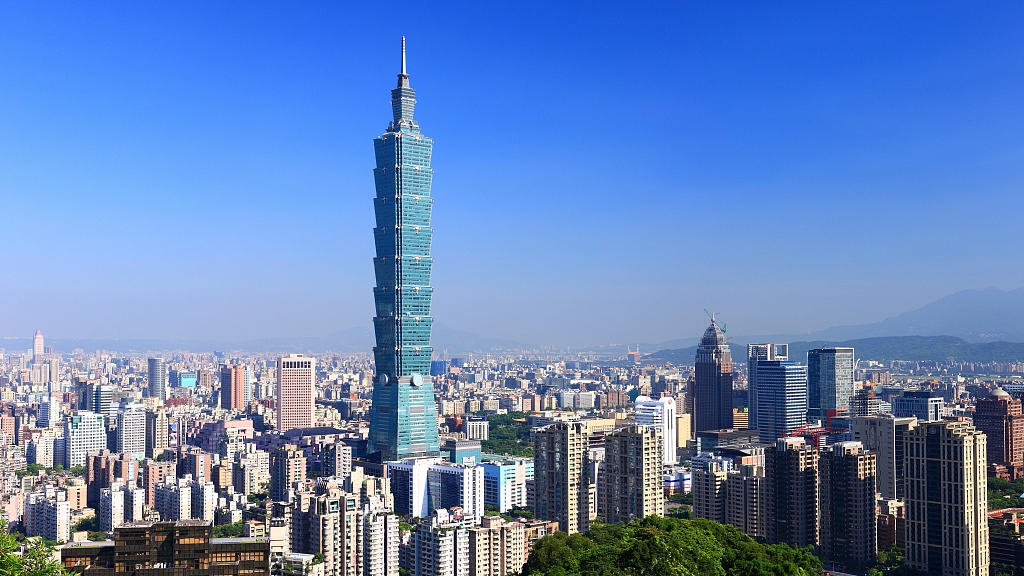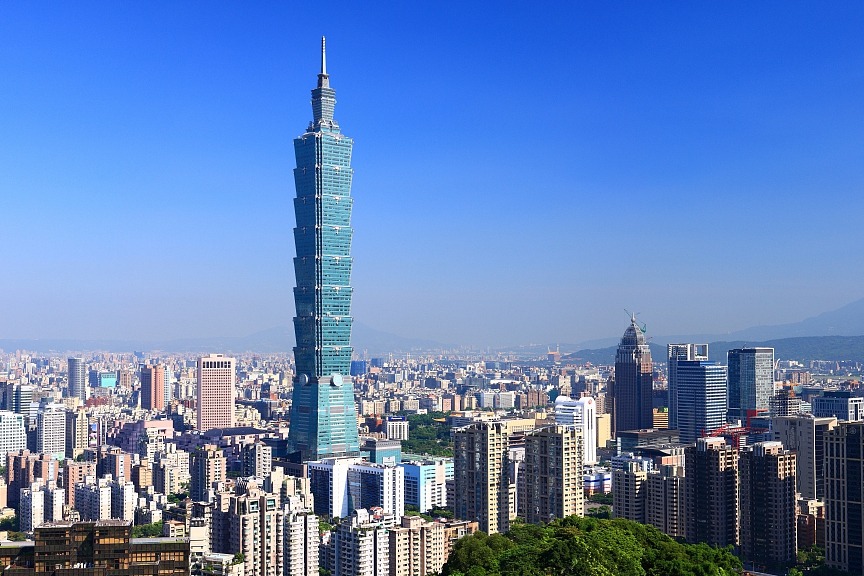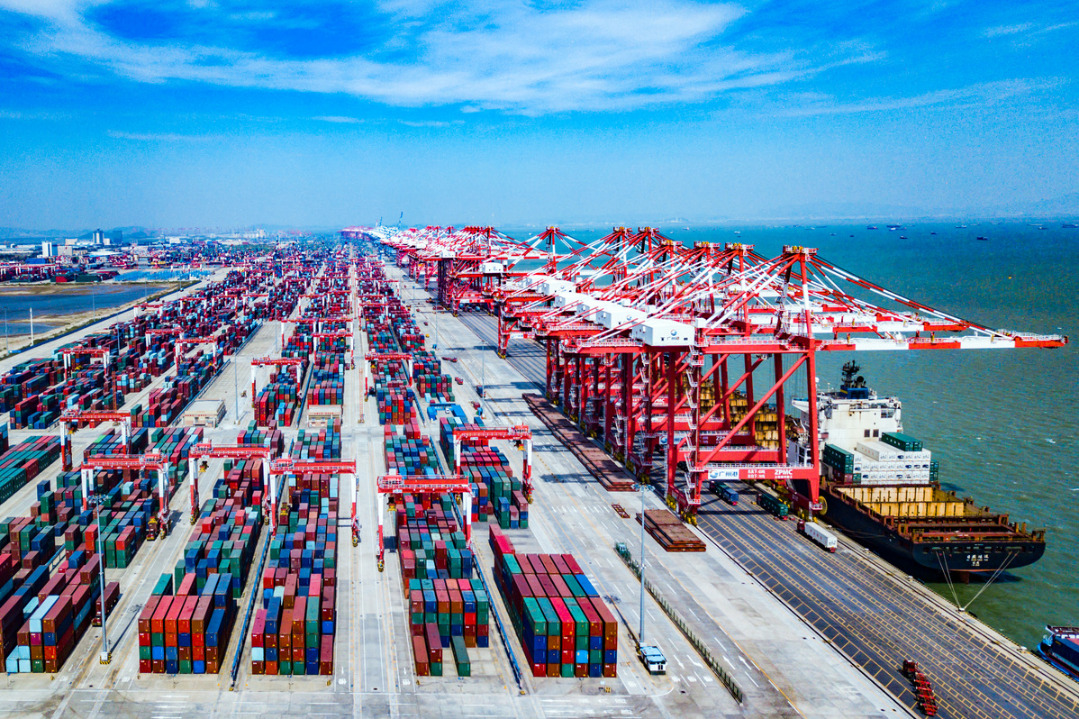Taiwan's new office in India a rash provocative move


As there are warming signs of improving relations between the two largest developing nations, India should exercise caution to avoid any provocations that might challenge China's bottom line.
The inauguration of the "Taipei economic and cultural center" in Mumbai on Oct 16 as the Taiwan's third representative office in India is a provocative move by Taiwan as it is a step toward seeking "independence" under the guise of promoting economic and cultural exchanges. Beijing has condemned the move and urged New Delhi to adhere to the one-China principle and handle with utmost care issues related to Taiwan to avoid hindering the progress in China-India relations.
There is only one China, and Taiwan is an inseparable part of China, and the government of the People's Republic of China is the sole legitimate government representing all of China, including Taiwan. Recognized by the international community, the one-China principle serves as the political foundation for China's diplomatic ties with all the countries.
As a nation with diplomatic ties with China, India should strictly adhere to the one-China principle, while refraining from conducting any form of official exchanges with the Chinese island, including the establishment of representative offices.
Under the pretext of promoting education, culture and trade, Taiwan's establishment of a representative office in India's financial capital of Mumbai is a clear violation of the one-China principle. On Oct 1, 1949, the People's Republic of China was founded, becoming the successor to the Republic of China, and the Central People's Government became the only legitimate government of the whole of China. And United Nations Resolution 2758, adopted in 1971, restored the People's Republic of China's seat as the sole representative of China, including Taiwan, in the UN. Taiwan's status as an integral part of China has not changed, and will not change.
Since the consulates general of People's Republic of China serve Chinese people, including Taiwan residents living in Mumbai, Taiwan's office in Mumbai is not only unnecessary, but also lacks legal basis.
Taiwan is a part of China, and the Taiwan question is China's internal affair, touching upon its sovereignty and core interests. India was the first non-socialist country to recognize the People's Republic of China — in December 1949, India withdrew its recognition of the Chinese government which had retreated to Taiwan and recognized the People's Republic of China. On April 1, 1950, China and India formally established diplomatic relations. And India's support for UN Resolution 2758 was instrumental in restoring the People's Republic's legitimate UN seat in 1971.
Although China-India relations have faced many ups and downs since then, India has remained committed to the one-China principle, recognizing the People's Republic as the sole legitimate government of China.
China-India trade has been thriving. According to the Global Trade Research Initiative, China was India's largest trading partner in the 2023-24 fiscal year, with bilateral trade reaching $118.4 billion. On the border disputes, as Chinese Foreign Ministry spokesperson Lin Jian said on Oct 22 last year, both sides have reached an agreement on relevant issues, creating the ground for restoring peace along the border.
History tells us that stable bilateral relations benefit the long-term interests of both countries and contribute to regional peace and prosperity. As two ancient civilizations and major developing countries, China and India should view each other as partners, develop mutual understanding and deepen cooperation.
More important, India should understand that the Taiwan question is a redline that it should not cross. Missteps will inevitably harm bilateral relations, impacting India's own interests.
Since the Democratic Progressive Party took power on the island in 2016, the Taiwan authorities has aligned with the United States in the hope of seeking "Taiwan independence" with the help of foreign forces. In an attempt to gain India's support, Taiwan authorities have made India a focus of its "new southbound policy".
Under DPP's lobbying, India's Taiwan policy is backsliding, revealing an inclination to play the "Taiwan card" along with the US. Some Indian think tanks advocate for deeper relations with Taiwan by breaking "diplomatic taboos".Certain Indian media outlets have even aired interviews with prominent "Taiwan independence" figures, promoting the idea that "Taiwan is a country", not part of China.
These developments are all the more alarming because India has not reaffirmed its adherence to the one-China principle in its joint statements with China for years, with its stance becoming increasingly ambiguous.
India must realize that by continuing to collaborate with "Taiwan independence" forces, it risks not only disrupting peace and stability across the Strait but also harming its own interests, ultimately "lifting a rock only to drop it on its own foot".
The author is a researcher at the Institute of Taiwan Studies, Chinese Academy of Social Sciences. The views don't necessarily represent those of China Daily.
If you have a specific expertise, or would like to share your thought about our stories, then send us your writings at opinion@chinadaily.com.cn, and comment@chinadaily.com.cn.


































